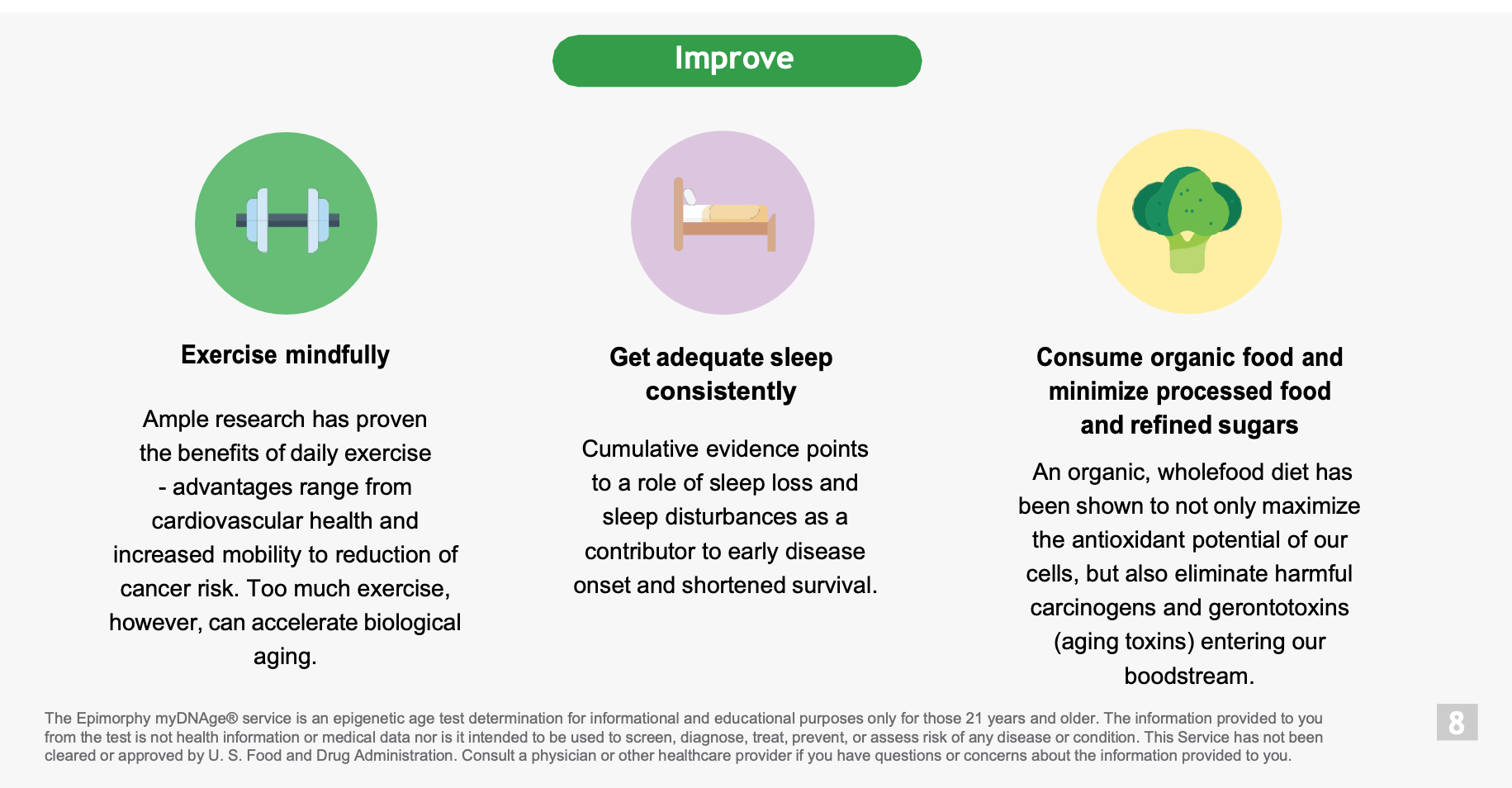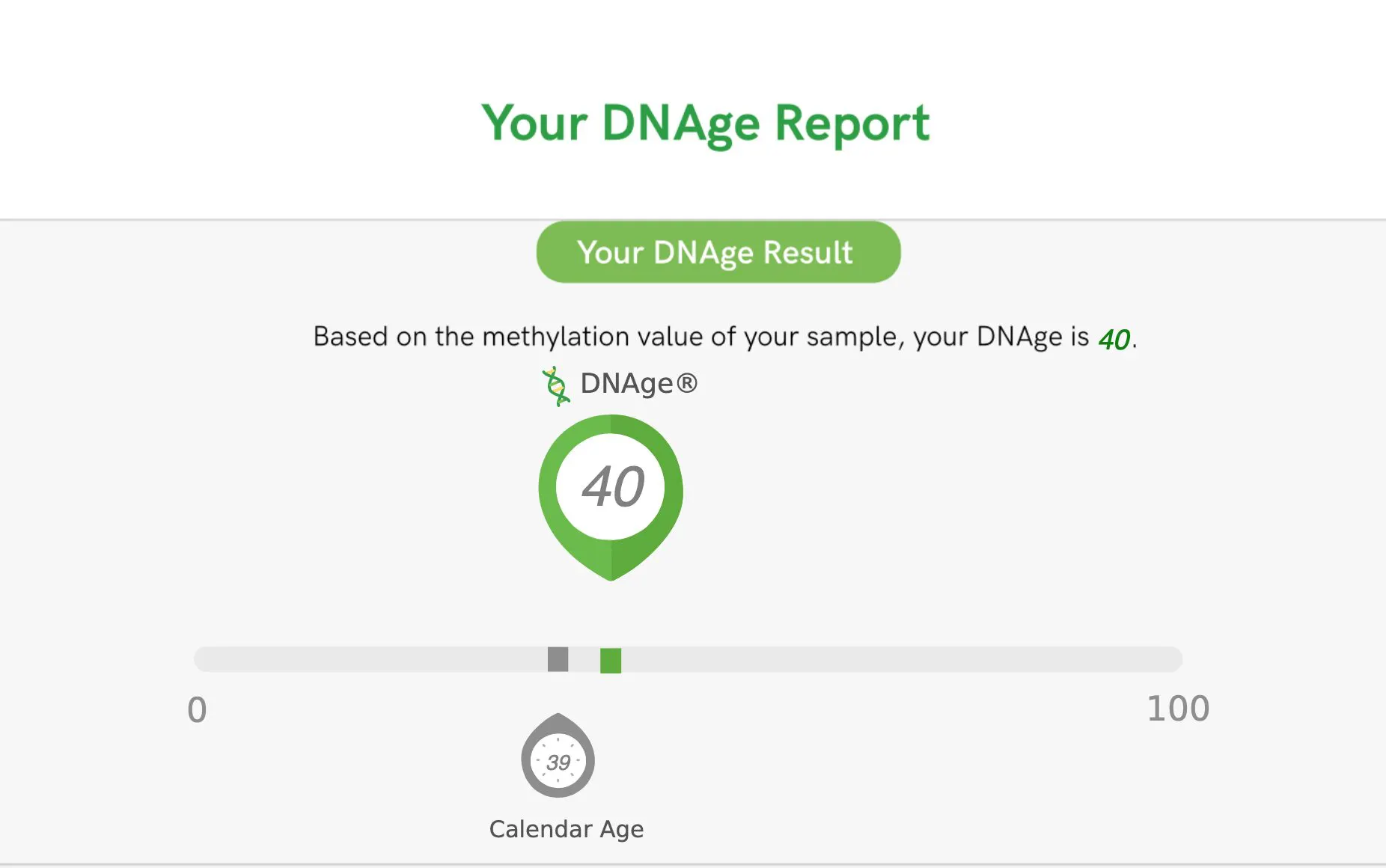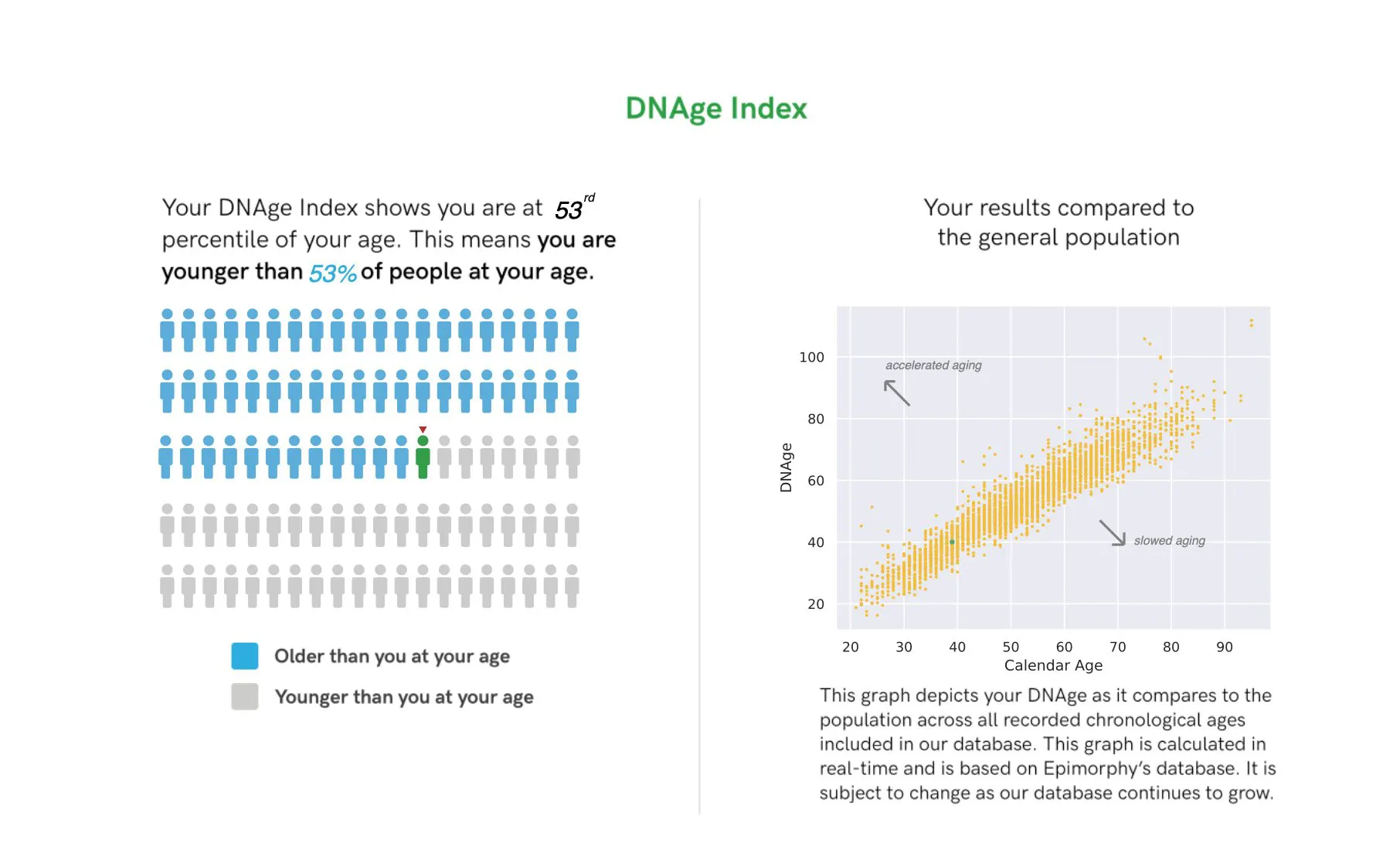(Not just because I’m unhappy with my results)
Hi friends! Are you OK? How are you doing this weekend? What did you do for the Super Bowl? We attended a wonderful event – I’ll share the details in Friday Favorites – where the family came over to watch an Usher concert…I mean the football game.
In today’s article, I’m finally ready to talk about my MyDNAge test results. It took me a while to come up with my idea because I was a little salty at first. In addition to how this test works, I’ll share why below. I didn’t include the referral link because I wasn’t quite sure whether to recommend it. I had a better experience and felt like I was getting more useful data from InsideTracker.
I really feel like home lab testing is the future and we will see more advanced methods and data in the future, which is very exciting! In the age of personalized health, understanding our genetic makeup has become a powerful tool for optimizing health. MyDNAge takes this concept to the next level by delving into the essence of our existence – our DNA.

Why I don’t like the MyDNAge test
How MyDNAge works
MyDNAge uses advanced technology to analyze DNA for specific markers associated with the aging process. The science behind this process lies in the examination of specific regions called epigenetic marks. These markers provide a unique snapshot of how your genes are expressed over time, giving you a glimpse into the biological age of your cells.
The process involves:
DNA collection:
MyDNAge requires a blood sample to be obtained through a home finger prick. (For more on this, see “Disadvantages” haha)
Epigenetic analysis:
The collected DNA is then subjected to sophisticated epigenetic analysis. This involves examining specific chemical modifications of the DNA molecule, known as methyl groups, which play a crucial role in regulating gene activity.
Age determination:
By analyzing epigenetic marks, MyDNAge can estimate the biological age of cells. These insights provide a personalized, data-driven perspective on how your body ages at a cellular level.

Information provided by MyDNAge
Biological age:
MyDNAge reveals your biological age, which can provide a more accurate reflection of your overall health than your chronological age.
Lifestyle Insights:
This service provides recommendations based on your genetic profile, providing insights into lifestyle factors that may influence the aging process.
Disease risk assessment:
Some genetic markers may be associated with increased or decreased risk of certain diseases, providing a proactive approach to disease prevention.
Benefits of MyDNAge Personalized Insights:
Early intervention:
Early knowledge of potential health risks can lead to proactive lifestyle adjustments and promote preventive health measures.
Disadvantages of MyDNAge
Delays in blood collection and results:
This test comes with a lancet and small tube. You should prick your finger and then attach a small tube to your finger so that blood can flow through the tube. I prick my finger and press the thin tube against it so that blood doesn’t get into the thin tube. It just makes a mess outside. I ended up sending their IV kit to my doctor’s office so my PCP could draw my blood. And, it took 89 years (6-8 weeks) to receive the results, which felt like an eternity.
Limited predictive power:
While MyDNAge provides valuable insights, its ability to predict future health outcomes is not foolproof because genetics interact with various environmental factors. The thing about genes is that they are not our destiny. They can provide great insights, but you can have tremendous power over how your genes are expressed.
Emotional impact:
Learning about potential health risks can have an emotional impact. One has to approach the results with a balanced mind and take these things with a grain of salt.
Delivery results:
As a holistic health coach, I love digging into data and testing results. Even though I do this quite often in my daily life, I find the results to be quite confusing. It told me what genetic variants I had—I wasn’t surprised to learn that I had MTHFR—but I didn’t feel like it gave very customized advice. The tips are pretty basic: Make sure you move every day, eat fresh produce, focus on sleep, which is everything I’m already doing and all the things you all know you should be doing for optimal health.
It also doesn’t offer any lifestyle advice if you have trouble meeting these basic requirements. InsideTracker does a better job of customizing advice (“Here’s why you should eat 1-3 servings of beans a day. You need to increase your intake of fatty fish. How this will help you if you avoid alcohol,” etc.)

Revolutionary.
I was also disappointed to find out that my cell age was 40 years old. I’ll be turning 40 in November, and I feel like I’m doing something positive for my health every day. Seeing this number, and the fact that I’m in the 53rd percentile among my peers, makes me feel a little defeated. I’m far from perfect, but I feel like I’m constantly trying to check the major boxes every day. This makes me think that massive improvement from here is not possible for everyday life? Also, why are my numbers not so good? It didn’t tell me.


Cost considerations:
The MyDNAge service comes with a price tag. The test cost about $500, but I won it through an EquiLife contest. Individuals should weigh the costs against the perceived benefits.
As with any genetic testing service, it is critical to view the results with a balanced perspective, taking into account both the empowering information provided and the potential emotional impact.
Ultimately, MyDNAge failed. I think it has incredible potential, but I’m not blown away by the delivery of results or the action steps associated with the results. I think I’m going to learn how to delve into high-performance fitness testing, so if that’s the case, I’m excited to give it another look. (Also, if this is the case, you may need a certified person to actually do the testing with you!)
Even though this is a bomb for me, for now, I definitely recommend Insidetracker. My referral link gives you 20% off!
Have you done these tests? If you are interested in functional testing (having someone check the results with you), you can apply here.
Western Europe
Gina

